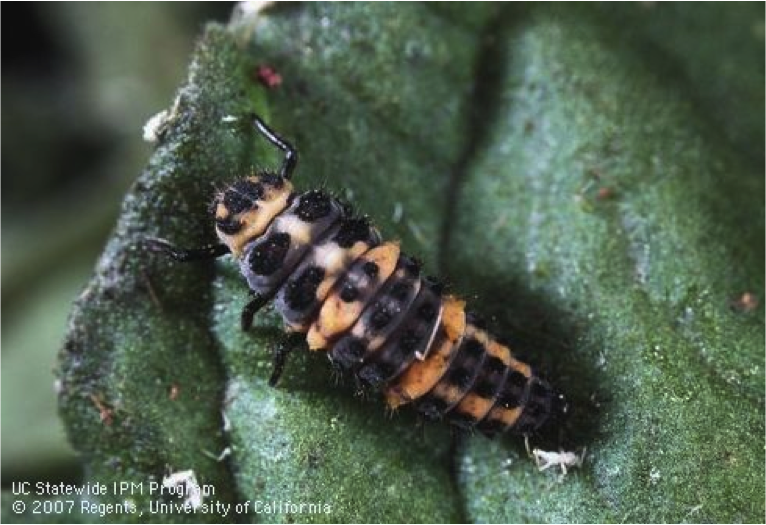The convergent lady beetle is the most common lady beetle in Kansas and the central High Plains. Adults are orange with black spots and two diagonal white lines which appear to converge on the black plate just behind the head, hence its name. The bright, yellow eggs look like small footballs set on end and are usually attached to the undersides of leaves in tight clusters. The immature lady beetle is a black alligator-shaped larva with rows of orange spots. Lady beetle adults and larvae eat greenbugs and other cereal aphids and are key biological control agents of these pests.


Convergent lady beetle larvae are dark gray to black with pairs of orange spots on abdominal segments 1,4,6 and 7. This species is native to North America and has two or more generations per year in the Midwest, depending on aphid availability.
